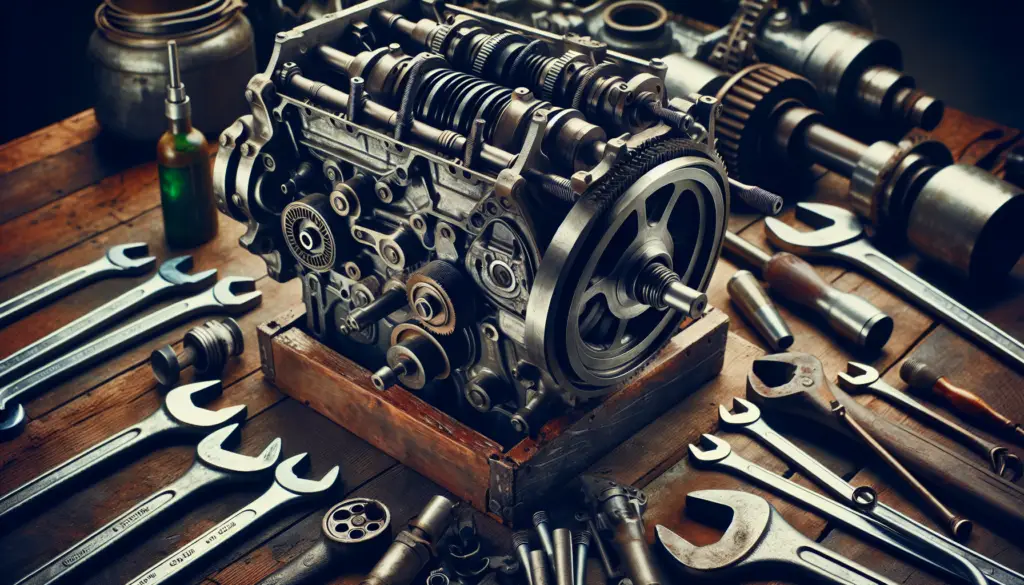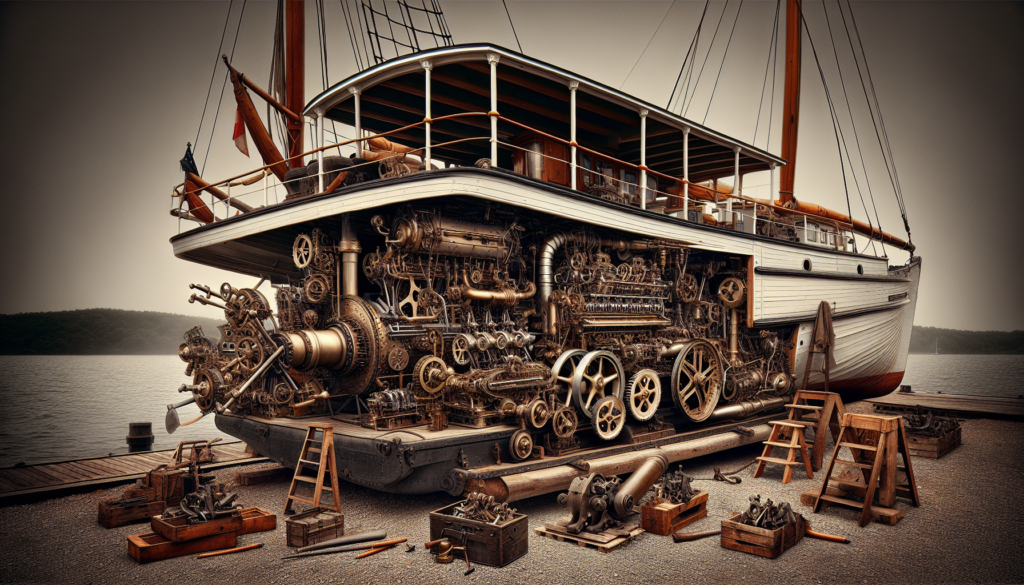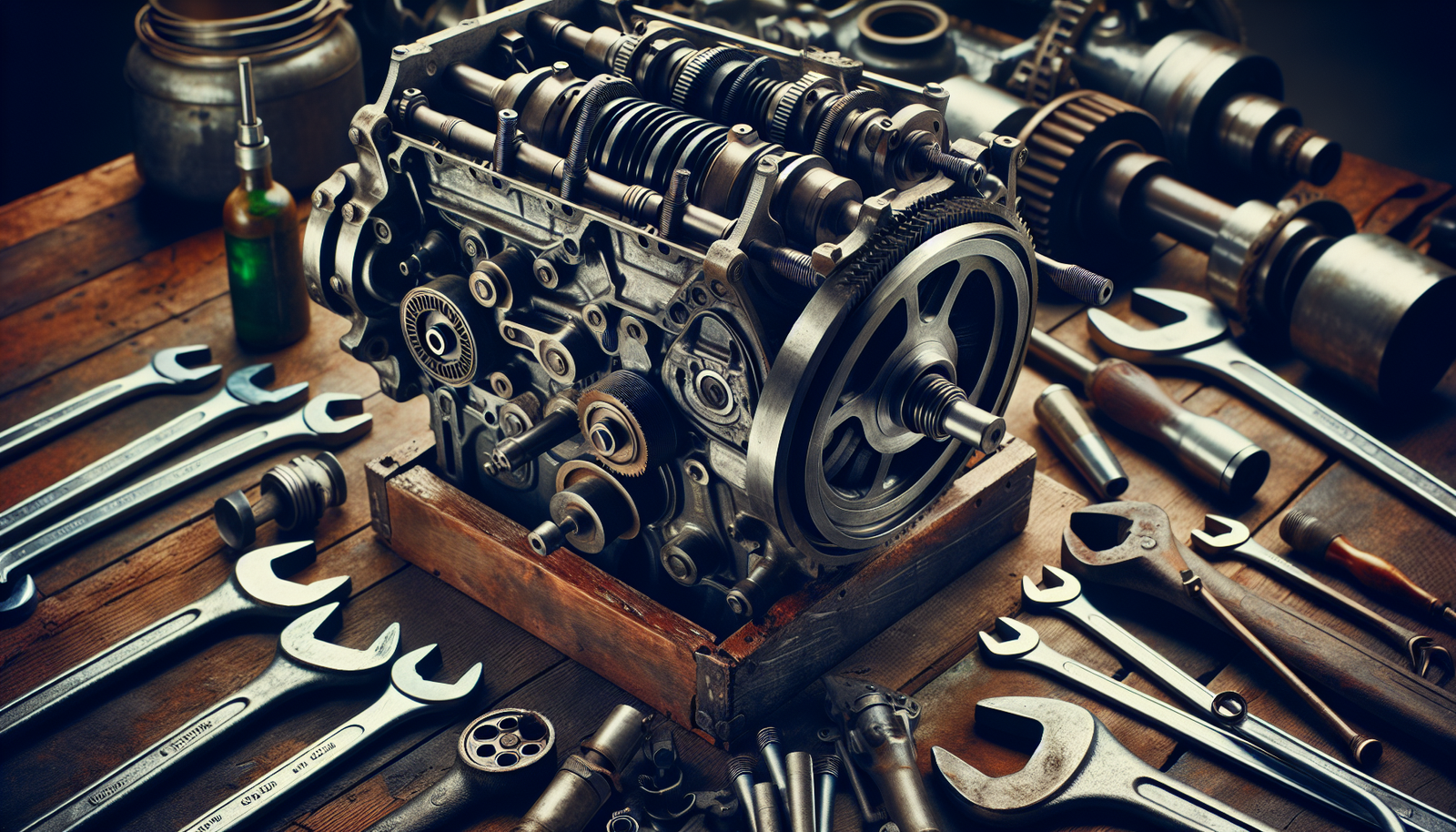You’re passionate about hitting the open water and value the roar of your boat’s engine. However, when you’re dealing with an older vessel, you’ll eventually face the daunting task of an engine overhaul. In the article “Essential Boat Engine Overhaul Tips for Older Vessels”, critical advice is shared to help you navigate through every step of the process. From the myth of avoiding engine overhauls to the importance of regular maintenance and the benefits of relying on a trusted mechanic – this comprehensive guide will set you up for a successful overhaul, providing peace of mind for your upcoming marine adventures.

Understanding the Importance of Engine Overhaul
Before delving into the nitty-gritty of engine overhaul, it is essential to understand what it means and why it’s crucial, especially for older vessels.
Defining an engine overhaul
An engine overhaul refers to the thorough inspection, disassembly, cleaning, repair, and possible replacement of worn-out engine parts. Essentially, it’s like giving your engine a fresh start, and it’s not something you’d undertake lightly. It should not be confused with routine maintenance, as it is a much more complex and detailed process that involves a comprehensive disassembly of the engine.
Why engine overhaul is crucial for older vessels
As your vessel gets older, its engine begins to wear out, affecting its performance and efficiency. By conducting an engine overhaul, you can extend the life of your boat, enhance its performance, fuel efficiency, and reliability. More so, an engine overhaul is more cost-effective than purchasing a new engine or vessel. Thus, ensuring your engine runs properly should not be viewed as a burden but rather an investment into a vessel’s longevity.
Recognizing Signs That an Engine Overhaul is Needed
Before going through this thorough process, you must identify the signs that signal an engine overhaul is needed.
Unusual noises
If your engine starts to produce unusual sounds, such as knocking, rumbling, or hissing, this could mean there’s internal damage that needs to be addressed.
Excessive smoke
While some smoke from your engine is normal, an excess amount (especially black or blue smoke) indicates that there’s a problem. It usually signifies oil or fuel is not being properly burned within the engine.
Decreased performance
A significant drop in your engine’s performance, such as reduced speed or trouble starting, is another common sign that an overhaul may be required.
Increased fuel consumption
If you notice that your vessel is consuming more fuel than usual, it may be a symptom of engine disorders, meaning an overhaul might be necessary.
Preparing for the Overhaul Process
Before you start tearing apart your engine, preparation is key.
Gathering necessary tools
First things first, ensure you have all the necessary tools on hand. These include basic tools like screwdrivers, wrenches, pliers, and specialized ones like an engine hoist and puller.
Creating a clean and organized workspace
Overhauling an engine is a messy job. You’ll want a clean, spacious, and well-organized workspace to keep track of all the parts and to ensure a safe working environment.
Creating a work plan and timeline
Determine the steps you’ll take and the time you’ll allocate for each stage. A detailed plan and timeline can help you stay organized and prevent the project from dragging on.
Properly Inspecting the Engine
Before you dive in, thoroughly inspect your engine.
Inspecting the outside of the engine
Start by checking the exterior of the engine for any visible signs of damage or wear.
Inspecting internal components
After examining the exterior, look inside. This phase will require disassembly of your engine, which should be done with care and careful marking or documenting of each part’s location.
Evaluating the condition of the engine’s parts
Each part must be evaluated carefully. Look for worn-out, damaged, or non-functioning parts that might need replacement or repair.

Knowing When to Call a Professional
Recognize your limits when it comes to skillset and understanding about engine mechanics.
Recognizing tasks outside your skillset
Should you come across tasks that feel beyond your skill level, such as deep engine diagnostics or precision tuning, don’t hesitate to call a professional.
Understanding the value of a professional’s expertise
A trained, experienced marine mechanic not only ensures the job is done right but can also offer advice and insight you might not have been aware of, potentially saving you money down the line.
Finding reliable and experienced marine mechanics
Take the time to research and find a trusted mechanic. Reviews, referrals, and their years of experience can be indicators of a reliable professional.
Understanding Different Parts of the Engine
Take the time to understand the different parts of your engine and how they work together.
Learning about major engine components
Study and understand the main components of your engine. These include the engine block, cylinder head, pistons, crankshaft, connecting rods, and the various valves and seals.
Understanding the function of each part
Beyond just recognizing the parts, understand what they do and how they interact within the larger engine system.
Identifying common wear and tear
Knowing which components are prone to common wear, such as the cylinder liners or piston rings, will help when it comes to diagnosis and inspections.

Executing the Overhaul
Once you’re adequately prepared and educated, you’re ready to start the overhaul.
Dissembling the engine
Take apart the engine methodically, being cautious not to force or damage any parts. Remember, documentation at this stage is crucial to help you put the engine back together correctly
Cleaning all components
After disassembly, clean all parts thoroughly. Deposits of oil, soot, and other residues can hinder the functioning of the engine.
Repairing or replacing worn out parts
Detect the worn-out parts and then decide to repair or replace them. Replacement is usually recommended for significantly worn out or damaged parts.
Reassembling the engine
Put everything back together in the same order that you took it apart. Ensure everything fits in the right spot and is tightened up properly.
Checking the Overhauled Engine
Once you’ve completed your overhaul, run through a final check.
Making sure all parts are properly installed
Ensure all components have been accurately installed, and nothing has been left out or wrongly assembled.
Checking for leaks
Look out for any oil, coolant, or fuel leaks from the engine. If detected, locate the source and rectify the issue.
Conducting a test run
Finally, start up the engine and observe its performance. Listen for any unusual noises, and check for excessive smoke and leaks once more.

Maintaining the Engine Post-Overhaul
The overhaul process doesn’t just stop at reassembly.
Regular engine checks and maintenance
You must engage in regular engine checks and maintenance to ensure longevity and smooth performance of your overhauled engine.
Preventing common engine issues
Familiarize yourself with common engine problems and take necessary preventative measures to avoid them.
Knowing when a minor repair or another overhaul is needed
Recognizing signs of wear or damage immediately they occur, and knowing when a minor repair or another overhaul is necessary can help maintain your engine’s lifespan.
Understanding the Lifespan of an Overhauled Engine
Lastly, it’s essential to manage your expectations regarding the lifespan of your overhauled engine.
Factors affecting the lifespan of an overhauled engine
Factors such as how the engine is used, how well it’s maintained, and the quality of parts used in the overhaul, all impact the longevity of your overhauled engine.
Expected performance post-overhaul
Although an overhauled engine should perform almost as good as a new engine, slight differences might occur depending on the extent of repairs and the quality of replacement parts.
Making an engine overhaul last longer
To ensure your overhaul lasts longer, commit to regular maintenance, preventative care, and address any issues as soon as they arise.
Mastering the art of engine overhaul is not an effortless task but it’s also not impossible. Adept knowledge, patience, and the right approach can lead to a successful engine overhaul. As a vessel owner, understanding the importance and mechanics of an engine overhaul could be a possible game-changer in maintaining your vessel.

